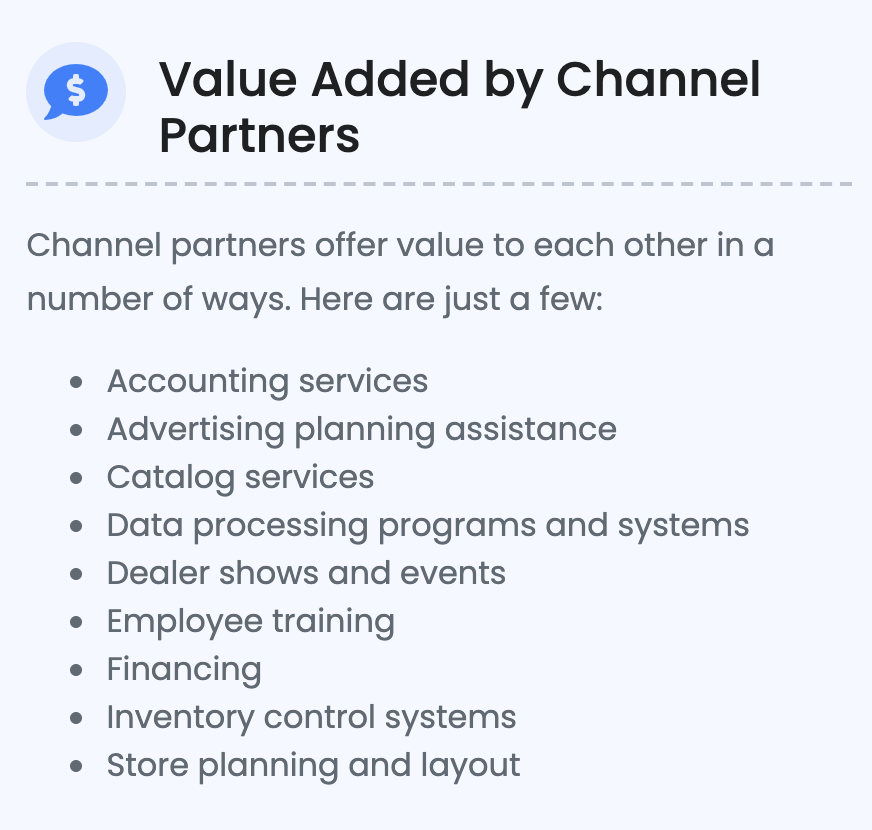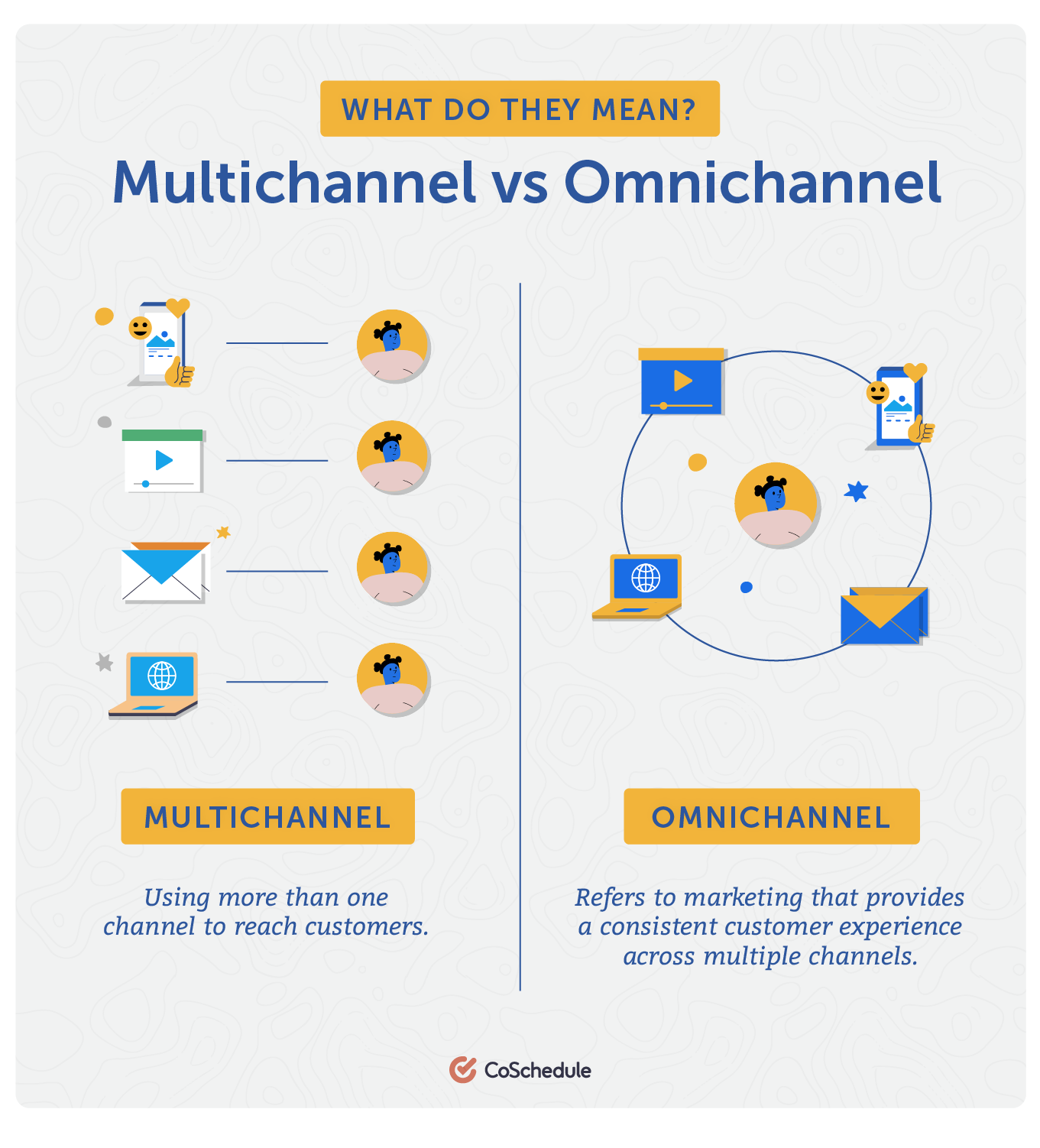What is channel marketing and why it matters?
Business owners are constantly searching for ways to improve their business. One of your many goals is likely to make the most of your marketing efforts and budget. Unfortunately, most marketing requires putting in a great deal of time and effort to achieve results.
Channel marketing lets you market and sell more efficiently, saving time and resources. Working with channel partners means they will take over a part of the sales and marketing, boosting your efficiency while cutting costs.
Take a closer look at channel marketing, including what it is, its benefits, and how to make the most from it.
What is channel marketing?
Although the names are similar, channel marketing and marketing channels are different from each other. Channel marketing is when you work with a channel partner (a third party) to bring your services or products to the market.
Nearly every single company can benefit from channel marketing. This is true regardless of industry and the size of your company.
For an example of channel marketing, consider a shoe company that sells to consumers directly via its website, catalog, and representatives. If the company also sells its products through resellers or private stores, those are channel partners.
Common channel partners include resellers, distributors, agents, consultants, and affiliates.
The most important aspect of channel marketing is that you and your partners are in a mutually beneficial relationship.
The benefits of channel marketing – channel marketing vs. Not using it.
Opting to incorporate channel marketing into your business strategy is typically a savvy decision. It comes with numerous benefits, including the following.
Reduces your expenditures.
The cost-effectiveness of channel marketing is one of the biggest reasons that so many businesses choose to take advantage of it. You typically spend significantly less with channel marketing than you would if you wanted to hire sales representatives or marketers to get the same reach.
Gives access to channel partners’ audience, boosting brand recognition.
Channel marketing gives you access to not only your own audience but the audience of your channel partners. This is an incredibly convenient method of boosting your brand recognition and sharing your brand messaging.
You may find yourself reaching audiences that you would never have thought of targeting. Or perhaps you will be able to reach audiences that you had tried but failed to target in the past.
Takes advantage of partner’s good reputation.
Assume you choose potential channel partners carefully. In that case, channel marketing lets you take advantage of their strong reputation. This builds on the previous point as you not only get access to their audience, but they essentially recommend you to that audience. If the brand has a solid name, its audience will trust its suggestion and has a higher chance of buying your product or service.
Diversifies your marketing with minimal effort.
One of the convenient aspects of channel marketing is that each of your channel partners will also complete their own marketing. It is in their best interests to do so, but that also helps you.
At the very least, this means that you get additional marketing via your partners with no additional effort required on your part. Even better, it lets you use a wider range of marketing strategies and maybe target different audiences. This is the natural consequence if you and your partners use slightly different marketing strategies.
You can even use their marketing strategies as a learning experience. If you notice that one of them does particularly well, you may decide to incorporate elements of it into your own strategies in the future.
Provides scalability without internal growth.
Using channel marketing also lets you grow your company without having to grow your internal teams. Instead of hiring more sales or customer support representatives, your channel partners handle that for you. Of course, you will still have to scale certain things, such as production or service capacity. However, the fact that you don’t need to grow your internal teams makes this scalability much easier with channel marketing.
Potentially provides more data.
In many cases, using channel marketing will give you access to even more data and information on your customers. After all, your partners will likely gather their own data to help them with marketing. They can then share that data with you.
What are successful marketing channel strategies? Major trends influencing channel marketing.
Even if you use channel marketing, you should still be aware of the various marketing channels you can use and the strategies to use them. Remember that marketing channels are the methods you use to reach consumers, such as social media or display ads.
Successful marketing channel strategies are those that focus on the right channels.
The most important part of your strategy is to choose the channels that your audience is on. For example, if your audience spends a lot of time on Twitter, you would want to choose that marketing channel. This helps ensure that you use your marketing budget and your time wisely.
Most companies will choose either an omnichannel or multichannel marketing approach.
You will have to decide which makes more sense for you.
The four types of marketing channels with examples – the individual pieces of channel marketing.
Experts agree that there are four main types of marketing channels. Take a closer look at each, as you and your channel marketing partners will likely use a variety of them. Having more diversity in the types of marketing channels you use may also help extend your reach or boost sales.
Direct Selling
Direct selling is when you sell products directly to consumers without a middleman and a fixed location in a retail store.
Examples of this include one-on-one demonstrations, internet sales, and hosting parties themed around a certain product.
Dual Distribution
With dual distribution, you use more than one channel at the same time. For example, maybe you sell directly to consumers and have third parties resell your products.
You have to be careful with this, however, as you don’t want to accidentally create channel conflict. That conflict can happen if you use multiple channels to attract the same market.
Selling Through Intermediaries
This is when you use retailers, wholesalers, and other intermediaries to expand access to your product or service. An example would be when you sell your product in a store or via an agent.
Reverse Channels
Reverse channels are unique in that they go from consumers to beneficiaries. An example is if someone resells your product after using it themselves.
How to use channel marketing for repeated success in your business?
To get the most from channel marketing, you want to keep a few best practices in mind.
Choose the right channel partners
Start by choosing the right channel partners to work with. You want to trust your partner and make sure that both of you benefit from the relationship. Your channel partner can benefit from discounts from you, increased traffic, or featured content on your website. You will get more sales along with visibility, brand trust, marketing ideas, and expanded reach.
When choosing potential channel marketing partners, consider whether you have similar goals and look for the following factors:
Appeal to potential partners
You want to not only reach out to the right partners but have them want to work with you. This means that to use channel marketing for repeated success, you want to provide partners with enough benefits and resources to make the experience worthwhile.
For example, you can give them access to your marketing materials with the option to customize them. Another example would be providing them with training and giving them enough information about your product or service to recommend it to others.
Take advantage of technology to communicate with channel partners.
Because your relationship with your channel partners is one of the most important influences on whether your channel marketing strategies are successful, you want to ensure you use the best technology at your disposal to stay in touch.
You need to have a streamlined system of communicating with partners, whether you prefer to do so via video or chat. Podium offers the tools you need to do so, whether you prefer to chat with partners via Teamchat or Inbox.
Use co-marketing campaigns
Using a co-marketing campaign lets you and your channel partners work together to target new audiences in a single campaign. It is when instead of running separate marketing campaigns, you work together to create one.
You will likely want to use a combination of these co-marketing campaigns and your own marketing campaigns separate from your partners.
Don’t ignore your other marketing strategies.
Just because you are using channel marketing, does not mean that you should neglect your other marketing strategies. Take your brand reputation as an example. Using channel marketing should help improve it, but you still want to encourage reviews and get feedback to further maintain it.
Conclusion – why you should care about channel marketing.
Channel marketing gives you the perfect opportunity to expand your company’s reach and gain a wider audience with a minimal investment. With this, you build on the existing reputation of your channel partners. As a bonus, you get to test out various marketing strategies with channel marketing.
Make sure to use tools like Podium to communicate with your channel partners and ensure your channel marketing strategies are a success.







